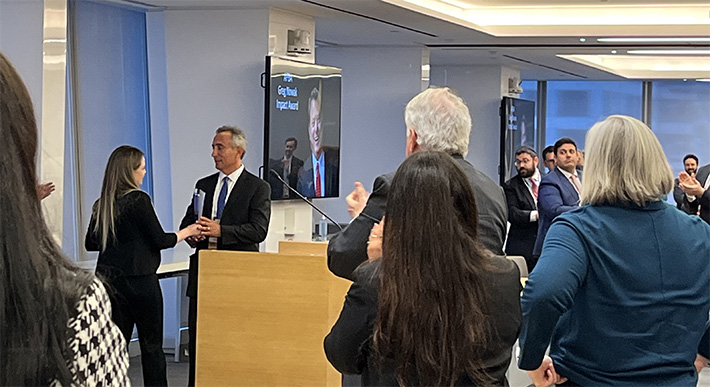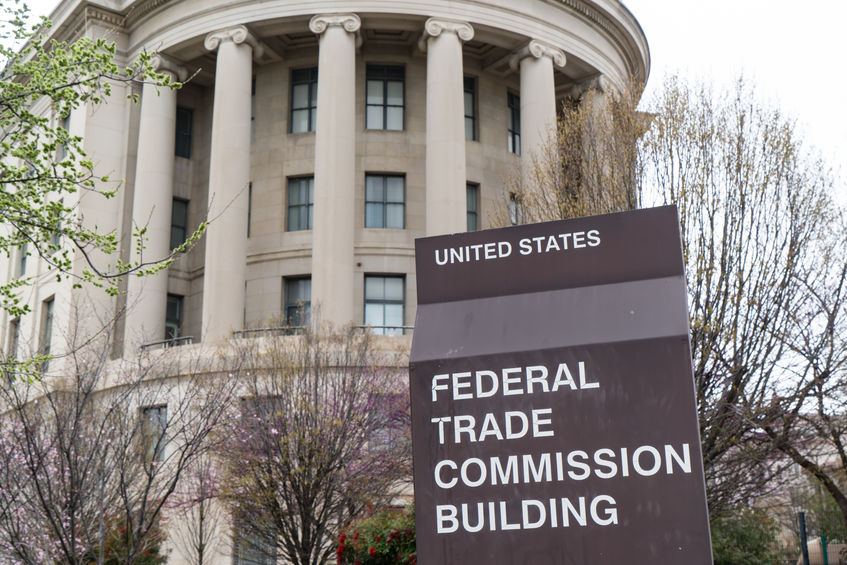Legal Briefs
Deal Gone Bad? Next Stop Arbitration
June 20, 2022 When a funder is unable to resolve a breach of contract with a customer on its own, litigation may seem like the only option left. But there may be an alternative, a process known as arbitration.
When a funder is unable to resolve a breach of contract with a customer on its own, litigation may seem like the only option left. But there may be an alternative, a process known as arbitration.
“Arbitration is a creature of contract,” said Zachary Meyer, a partner at a law firm. Meyer is also the co-founder and Chief Administrator of RapidRuling, an arbitration forum that has recently experienced an uptick in cases from the small business finance space. An arbitration forum is an alternative to the courthouse, where disputes are adjudicated by an arbitrator instead of a judge. It’s binding. The prevailing party, for example, can take an arbitrator’s award to the Court and turn it into a judgment.
Meyer told deBanked that part of the original vision for RapidRuling was an entirely online system that would prevent one or both parties from having to incur travel costs to participate. The overall cost of arbitration for a respondent in Montana, for example, would go up if they had to pay for a flight to New York City just to appear for it. “It’s beneficial for the [respondent],” Meyer said.
But in 2019 when RapidRuling first launched, the industry was already well accustomed to relying on AAA, the acronym for the American Arbitration Association. AAA, which was founded in 1926, resolved more than 300,000 total cases in 2019 alone. But then, Covid hit.
“It was like a perfect storm,” Meyer said. As the court system ground to a halt and struggled to move online, an all-online arbitration forum like RapidRuling suddenly had significant appeal. Meyer explained that the forum’s low filing fee compared to alternatives also grabbed attention. It understandably took off.
But the path to arbitration, including which forum to rely upon, may all hinge on the original contract itself, which a funding company’s attorney should carefully draft. Copying and pasting a random contract off the internet, for example, carries great risk, Meyer explained, because one may later discover a boilerplate arbitration clause to be limiting or disadvantageous.
RapidRuling’s website describes its arbitration process in four steps:
1. Submit Your Dispute
2. Wait For Opposing Party To Respond
3. Arbitrator Reviews Submissions
4. Receive An Arbitration Award
Contrast that value proposition to litigation, which depending on the circumstances could be drawn out for years.
RapidRuling seeks out arbitrators that are well-qualified, fair-minded, and diverse. “We have a panel of six arbitrators right now,” Meyer said, “and we’re looking to add more.”
David Picon the Recipient of the Greg Nowak Impact Award
June 16, 2022 The Alternative Finance Bar Association named Proskauer partner David A. Picon the recipient of the AFBA Greg Nowak Impact Award. Picon, who was also the keynote speaker of the AFBA conference, was selected by the association’s members for his all-around efforts for the legal community both on matters of law and outside of it.
The Alternative Finance Bar Association named Proskauer partner David A. Picon the recipient of the AFBA Greg Nowak Impact Award. Picon, who was also the keynote speaker of the AFBA conference, was selected by the association’s members for his all-around efforts for the legal community both on matters of law and outside of it.
Greg Nowak, who passed away suddenly last year, was a partner of Troutman Pepper and a beloved founding member of the AFBA. His wife and son were both present for the heartfelt moment in Nowak’s honor.
The Alternative Finance Bar Association Conference is SOLD OUT
June 7, 2022Next week’s Alternative Finance Bar Association Conference has already sold out. The exclusive go-to event for industry attorneys takes place on June 15th and 16th in New York City.
Thirteen organizations are sponsoring it, including deBanked. The AFBA provided the attached graphic to showcase who they are:

deBanked plans to have three representatives present. For information and inquiries about the event, please contact Lindsey Rohan at lindsey@lrohanlaw.com. This event is sold out.
RCG Advances Permanently Banned From MCA Business by FTC
June 6, 2022 It’s déjà vu. Five months after the FTC successfully banned someone from engaging in the MCA business, the agency has secured a similar outcome from additional defendants. This time it’s RCG Advances and its operator that are banned, according to the final settlement announced by the parties. In addition, RCG is required to make an upfront payment of $1.5M to the FTC and refund $1.2M to its previous customers that it had allegedly deceived.
It’s déjà vu. Five months after the FTC successfully banned someone from engaging in the MCA business, the agency has secured a similar outcome from additional defendants. This time it’s RCG Advances and its operator that are banned, according to the final settlement announced by the parties. In addition, RCG is required to make an upfront payment of $1.5M to the FTC and refund $1.2M to its previous customers that it had allegedly deceived.
The penalty may appear rather small in the big picture, but it is possibly as strong an outcome as the FTC could’ve hoped to obtain given the odd circumstances that befell the case. For example, the FTC filed its suit against RCG in June 2020 under Section 13(b) of the FTC Act, one of the most common tools in its legal arsenal. Less than a year later, the Supreme Court of the United States ruled that despite long-standing precedent, 13(b) did not give the FTC legal authority to obtain monetary relief, which from the FTC’s point of view, defeated the entire purpose of bringing such claims. In light of the ruling, the FTC was forced to change its strategy in the RCG case. In May 2021, the FTC asked the Court if it could amend its lawsuit to state that what the defendants had actually done all along was violate the Gramm-Leach-Bliley Act. It was perhaps a more difficult path forward.
By January, the first settlement was announced. This RCG settlement now follows that. One defendant in the case has not settled and the proceedings are still ongoing.
Register for The 4th Annual Alternative Finance Bar Association Conference
May 12, 2022 The fourth annual Alternative Finance Bar Association conference is BACK IN PERSON. This is the go-to event for and with the industry’s leading attorneys.
The fourth annual Alternative Finance Bar Association conference is BACK IN PERSON. This is the go-to event for and with the industry’s leading attorneys.
Mark your calendars for June 15th and June 16th in New York City and register by emailing Lindsey Rohan at lindsey@lrohanlaw.com. Registration is subject to approval and space availability.
Two-day program includes the following panels:
The State of the Industry: Industry experts discuss pending legislation, case law and market hurdles. They have both a regulatory panel ready to discuss what’s new in Virginia, Utah, NY and California as well as a Courtroom panel ready to discuss the winning and losing case law that has come out in the past year.
Bankruptcy: The aftermath of Chicago v. Fulton, In re Shoot the Moon and other pivotal bankruptcy cases that shape industry practices.
Ethics: Challenges faced by internal counsel and ways to navigate those pressures.
Collections: Trends in the post-COJ, post-COVID era.
Employment/Labor Law: The rise of labor use outside the U.S. What challenges arise from having call centers outside the U.S. Tax implications, oversight and practical benefits/detriments. Post-COVID remote work implications. What you need to be aware of to avoid creating liabilities.
The Art of Arbitration: The importance of a carefully drafted Arbitration Clause and the pro/cons of this venue.
Thinking Ahead: What technologies and market conditions will shape the future of the industry. Broad discussion of Blockchain technology, CRM systems, cannabis and what we can imagine will shape the future of Alternative finance.
WEDNESDAY KEYNOTE: David Picon, Esq. – It is with great pride that David Picon of Proskauer Rose will be the Keynote speaker. For years the AFBA has admired his work from afar. Attendees now have an opportunity to learn directly from David what makes for an unstoppable litigator.
THURSDAY SPECIAL EVENT: AFBA Game Show Mash-Up with the Industry’s Legendary Attorneys. Special Guests you will not want to miss!
Speakers:
- Andrew Smith, Covington & Burlington LLP
- Brian Simon, Hollis Public Affairs
- Jamie Polon, Mavrides Moyal Packman & Sadkin, LLP
- Patrick Siegfried, Rapid Finance
- Natalie Pappas, Rapid Finance
- Keith Ellis, Expansion Capital Group
- Kate Fisher, Hudson Cook LLP
- Cathy Brennan, Hudson Cook LLP
- Blake Sims, Hudson Cook LLP
- Steve Denis, Small Business Finance Association
- Christopher R. Murray, Murray Legal PLLC
- Mark Stout, Padfield & Stout
- Shanna Kaminski, Kaminski Law Group
- Michael W. Davis, DTO Law
- John Viskocil, Fora Financial
- Gabriel Mendelberg, Mendelberg P.C.
- Anthony F. Giuliano, Giuliano Law P.C.
- Jeffrey S. Cianciulli, Weir Greenblatt Pierce LLP
- David Picon, Proskauer Rose
- Jonathan Nelson, Dedicated Financial GBC
- Lindsey Rohan, BasePoint Capital LLC
- Christina Grigorian, Katten; Zach Miller, Burr & Foreman
- Renata Buhkman, Delta Bridge Funding
- Vanessa Petty, Settle
- Alexis Shapiro, Forward Financing
- Jan Owens, Manatt Phelps
- Scott Pearson, Manatt Phelps
- Jesse Michael Carlson, Kapitus
- Robert Zadek, Buchalter
When:
Day 1 – June 15
9:00am – 4:30pm: Offices of Proskauer Rose (includes light breakfast and lunch)
5:30pm – 7:30pm: Cocktails at Dear Irving
Day 2 – June 16
9:30am – 6:00pm: 15 W. 38th Street, 2nd Fl, Sinatra Room (includes light breakfast and lunch)
4:00pm: Wine & Cheese
Register soon, SPACE IS LIMITED!
deBanked is a sponsor of the event. Industry attorneys are highly encouraged to attend.
Man Who Defrauded MCA Companies Indicted
April 19, 2022 An alleged fraud executed five years ago against merchant cash advance companies did not go unnoticed. A grand jury indicted an El Dorado Hills resident named Suneet Singal on April 7th under seal. The Department of Justice announced it yesterday morning.
An alleged fraud executed five years ago against merchant cash advance companies did not go unnoticed. A grand jury indicted an El Dorado Hills resident named Suneet Singal on April 7th under seal. The Department of Justice announced it yesterday morning.
According to the Grand Jury, Singal engaged in a scheme to fraudulently induce financing companies to provide merchant cash advances to a company he had previously sold and no longer owned. In doing so, Singal allegedly received six wires from four financing companies between April 12 and May 22, 2017 in the amounts of $197,370, $112,308, $48,500, $294,946, $96,970, and $43,975. The indictment did not cite any of the companies by name. Allegedly, Singal used those funds for various expenses, and the company he did not own was forced to file for bankruptcy. Singal was indicted on 10 counts.
The DOJ did not publish the full indictment but it can viewed in its entirety here. Despite the “sealed” stamp at the top, the court ordered it be unsealed upon Singal’s arrest and is public record.
Maryland’s Commercial Financing Disclosure Bill Failed to Move Forward
April 12, 2022 Maryland’s commercial financing bill, propelled by bi-partisan support, failed to overcome the final hurdle before the State’s 2022 legislative session adjourned sine die yesterday. SB 825 passed the Senate in March and became the subject of much debate in the House of Delegates on the 30th. Testimony from 17 people was considered, much of it oral.
Maryland’s commercial financing bill, propelled by bi-partisan support, failed to overcome the final hurdle before the State’s 2022 legislative session adjourned sine die yesterday. SB 825 passed the Senate in March and became the subject of much debate in the House of Delegates on the 30th. Testimony from 17 people was considered, much of it oral.
The bill’s lofty idyllic intent is perhaps what contributed to its demise. Despite legislative enthusiasm for applying consumer style protections to commercial finance transactions, regulators tasked with its actual implementation were amongst its harshest critics.
The Consumer Protection Division of the State’s Attorney General’s Office said “the bill makes a violation an unfair, abusive or deceptive practice in violation of the Consumer Protection Act. With limited exceptions, violations of the Consumer Protection Act are limited to consumer transactions, i.e., transactions that are primarily for personal, family or household use, and expanding the CPA to cover business-to business transactions would open a door that could lead to a significant increase in the number of complaints received by the Division, requiring the Division to add corresponding resources.” The Division gave an official thumbs down on the bill.
Maryland’s Department of Labor stated that the requirements of the bill would make it “difficult to operationalize from a monitoring, investigatory and enforcement perspective” and that there would be too much uncertainty given that New York, a state that passed a similar law, has been unable to effectively implement their own version. “Maryland small businesses, lenders and borrowers alike, may be negatively impacted if the rollout of the system in New York is significantly delayed or New York enacts systems or procedures not appropriate to or anticipated by Maryland businesses,” it concluded.
Other states, like California, have encountered similar problems with commercial financing disclosure legislation. The bill it passed in 2018 still has not been implemented over lingering disputes over how to do the math it mandates.
Proponents and critics alike picked away at each other’s arguments in Maryland, but when the session ended late late Monday evening to a hail of confetti and balloons, SB 825 had not been called. This was the third year in a row that a commercial financing bill has failed. Another version will likely be introduced when the legislature eventually returns.
MJ Capital Had Thousands More Investors Than Previously Believed
March 28, 2022 An amended complaint filed last week by the SEC against MJ Capital Funding, LLC et al. revealed a shocking new assessment, that the alleged ponzi scheme attracted more than four times the amount of investors originally believed. With more than 9,000 investors now accounted for, the number has continued to shoot up since the case was first filed last August.
An amended complaint filed last week by the SEC against MJ Capital Funding, LLC et al. revealed a shocking new assessment, that the alleged ponzi scheme attracted more than four times the amount of investors originally believed. With more than 9,000 investors now accounted for, the number has continued to shoot up since the case was first filed last August.
Between them all, MJ Capital collected $194.1M in investor funds, the amended complaint states. $56M of it was allegedly misused through payments made to various entities, “a substantial portion of which represent payments to sales agents for promoting the investments in the MJ Companies.” Another $64M was paid back to investors as purported returns from the company’s business operations.
Those operations were minuscule, the SEC claims. MJ Capital is alleged to have only allocated $872,000 towards the line of work it claimed to be operating in.
Possessing the hallmarks of a classic ponzi scheme, the SEC further said that “the only way the MJ Companies could honor their obligations to investors would be by successful continuation of their fraudulent scheme. Once the supply of new investors was exhausted, the MJ Companies would be unable to pay the promised returns to existing investors.”





























